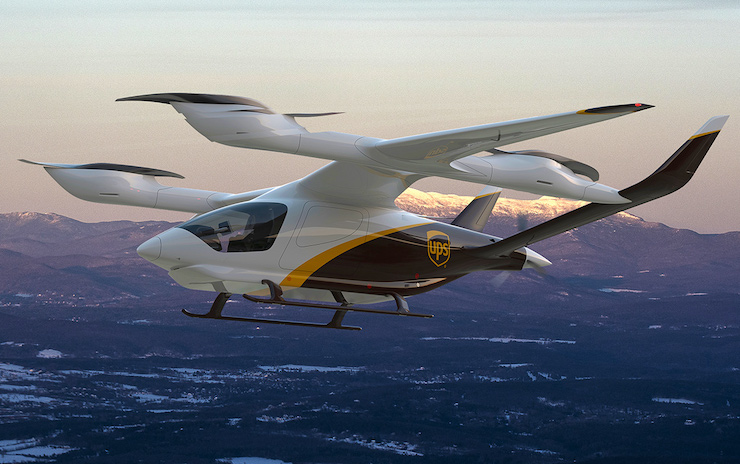
UPS is one of a number of parcel delivery services that has turned to drones to expedite their deliveries to businesses and individuals alike. Thanks to the Federal Aviation Administration (FAA), UPS will be able to make those deliveries over much longer distances – and far more cheaply.
The FAA just granted UPS – or rather UPS Flight Forward (UPSFF), its drone division – a coveted Beyond Visual Line of Sight (BVLOS) waiver that will allow UPS to dispense with remote piloting and visual observation of its drone deliveries. Those two safety conditions are costly to the company – requiring extra manpower and slowing down deliveries considerably. Now, UPS Flight Forward can fly its drones autonomously, and can also send out multiple drones to make consecutive deliveries, rather than having each drone return to its original launch point.
This is the key to achieving “scalability” – and making the company’s remote delivery service not just convenient for customers but profitable for UPS.
“We are thrilled by this approval from the FAA and know this will play a significant role in the scaling of drone delivery services throughout the United States,” said Andreas Raptopoulos, Founder and CEO of Matternet, the drone company that makes deliveries for UPS. “We are excited to continue our partnership with UPSFF to grow our services and enable drone delivery at scale. This is another step in our journey to make drone delivery a common part of everyday life.”
Mountain View, CA based Matternet was the key technology partner that allowed UPSFF to obtain its BVLOS waiver. The company has developed a ground-based radar system that can detect potential air traffic conflicts overhead and signal drone operators to redirect their aircraft’s flight path. Eventually, the system will work completely autonomously, without the need for human intervention, but for now – pending further FAA approval – Matternet’s remote pilots – coordinating the operations of 3 aircraft each – will need to adjust their flight patterns, as needed.
Why a ground-based system? It’s far more efficient. Drones equipped with on-board sense-and-avoid technology are heavier, with more limited cargo space. But a ground-based system also sets the stage for multiple companies in the same operating area to plot and direct delivery operations collectively, with the cost of the infrastructure shared among multiple users.
Matternet, in effect, is providing a “proof of concept” for the entire drone industry – one reason the FAA, which is concerned about safe and scalable delivery operations nationwide, decided to expedite approval of the UPS waiver.
“This is an important moment in our company’s history and will allow us to increase scale while continuing to change the way goods are transported and delivered,” says Jim O’Sullivan, Vice President of Regulatory Strategy and Special Projects at Matternet.
“We have always known drone delivery companies can solve numerous challenges. This approval will advance the regulatory framework in a way that encourages wider drone adoption throughout the world,” he adds.
Matternet’s partnership with UPSFF began in 2019 when the two companies collaborated in the delivery of medical supplies in North Carolina and Florida. In 2021, UPSFF also chose Matternet to deliver COVID-19 vaccines to the Atrium Health Wake Forest Baptist Medical Center in North Carolina.
Matternet has already received a “type” certificate from the FAA for its Matternet 2 cargo drone, which can carry payloads of up to 2 kilograms (4.4 pounds) over distances of up to 20 kilometers (12.4 miles). While several other drone companies have received “airworthiness” certificates, allowing them to test their advanced prototypes in the real world, Matternet was the first to have a specific drone model formally certified by the FAA and approved for commercial flying.
So far, just one other company – San Francisco-based Zipline – has obtained an FAA waiver to conduct BVLOS small cargo deliveries by a single drone over long distances. But with FAA approval for continuous drone fleet operations, UPSFF and Matternet’s could soon set the standard for truly scalable delivery operations nationwide.
|